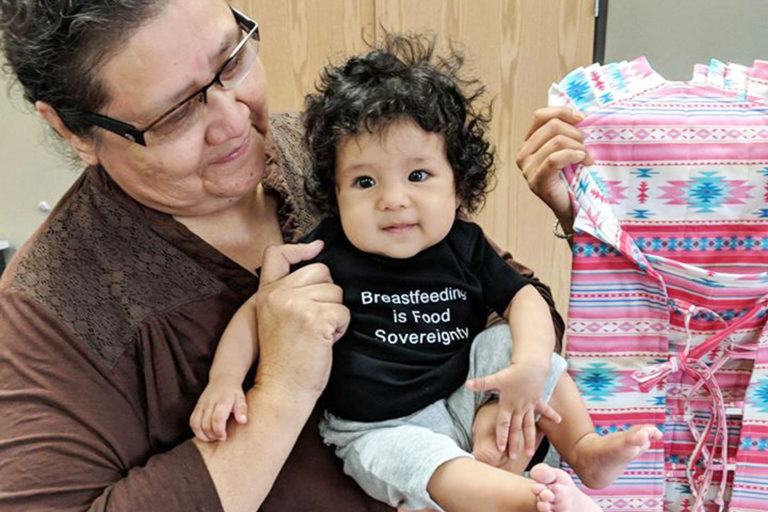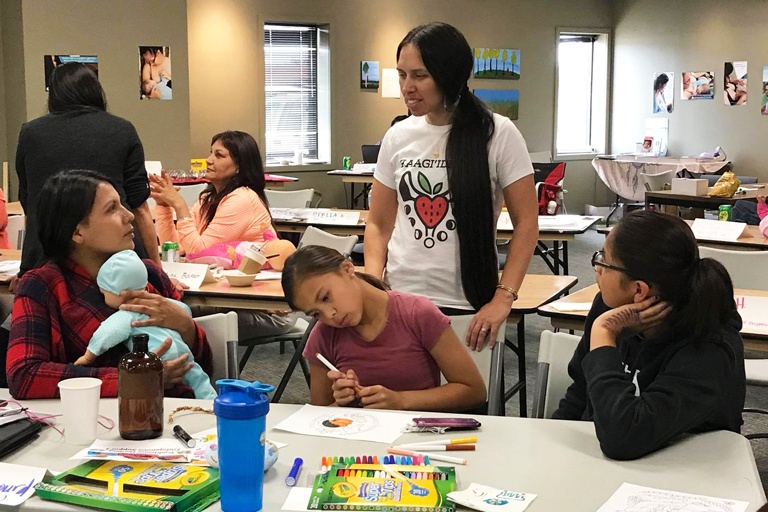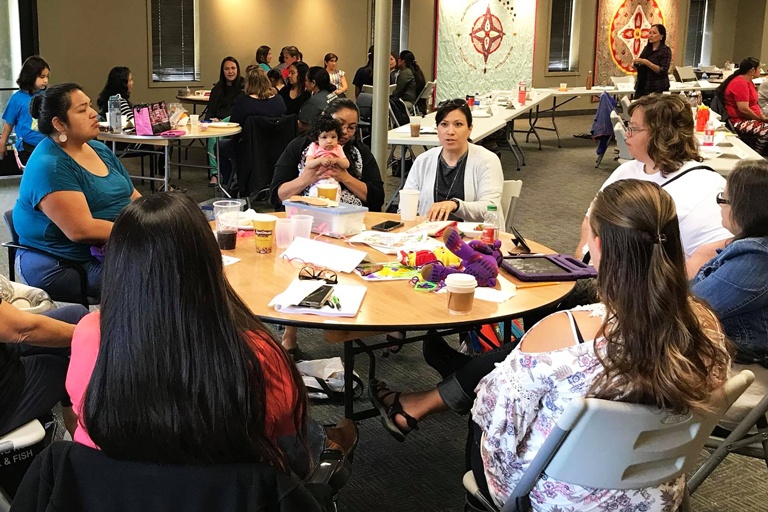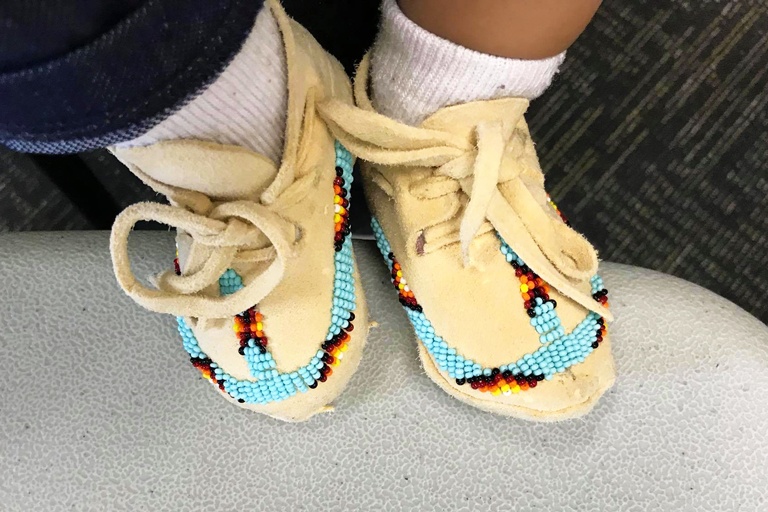Mewinzha Ondaadiziike Wiigaming

In the Native nations located in Northern Minnesota – Leech Lake Band of Ojibwe, White Earth, and Red Lake Reservations – women are reclaiming their birthing rights. Mewinzha Ondaadiziike Wiigaming, an American Indian nonprofit organization, is striving to give women and families more choice, control, and confidence when it comes to the birthing process. Mewinzha’s vision is that all pregnant and birthing mothers will understand that natural birthing is an essential part of Bimaadiziwin, the healthy way of life.
“In trainings, we hear other grandmas, moms, and aunties say, ‘I wish we would have had this when we had our babies.’”
Milicent Simonson, Certified Doula and Lactation Specialist, Mewinzha Ondaadiziike Wiigaming
A support network for new Native moms
Few things are more momentous as bringing a baby into the world, especially the first time. However, the process can also be intimidating and confusing, especially without a strong support system. For Native women, historical trauma, such as forced sterilization and cultural erasure, compounds other health risk factors, making the need for a support network even greater. Millicent Simonson and Roberta Decker are certified doulas and lactation specialists working with Native women and families in and around Bemidji throughout the entire birthing process to dispel fears and give new moms confidence to speak up for themselves and their babies. They founded Mewinzha (long ago) Ondaadiziike (women birthing) Wiigaming (in birthing lodge, home or hospital) in 2013 after seeing firsthand how isolated many women were through the birthing process.
Mewinzha is made up of other maternal and child health care workers, including Natalie Nicholson, a family nurse practitioner and certified lactation counselor (and also Millicent’s daughter). “We cover the history of birth and the places fear was put in at our trainings so people understand where we’re coming from and where we’re going,” said Natalie.
The organization works with parents, especially mothers, as doulas, childbirth educators, and breastfeeding coaches during pregnancy, labor, delivery, and post-birth. “We offer maternal/child health services in a nontraditional clinical setting to bridge western medicine with traditional cultural activities and teachings,” explained Natalie. “I think that’s an important blend that’s not always offered in our area.”
Offsetting birth rate disparities

While the infant mortality rate (number of deaths by the age of one per 1,000 live births) has been going down nationally, it remains much higher for American Indians and Alaska Native populations. According to the CDC, in 2016 there were 4.9 infant deaths per 1,000 for non-Hispanic whites compared to 9.4 for American Indians/Alaska Natives. The maternal mortality rate is also above both state and national averages; a 2016 Community Health Profile by the Urban Indian Health Institute found that maternal morality was 4.5 times higher for American Indians/Alaska Natives than non-Hispanic whites.
Despite these statistics, Mewinzha doesn’t get many referrals for its work from mainstream health care providers, especially as a small nonprofit. However, its workers are still showing up in the local hospital, where most of the births they assist with take place: Mewizha team members go with patients to doctor visits and make sure they feel comfortable and respected. According to a 2017 poll by NPR/Robert Wood Johnson Foundation/Harvard T.H. Chan School of Public Health, 23% of Native Americans stated they’ve personally experienced discrimination going to a doctor or health clinic. “We sit with them after and ask ‘how did that feel?’ or ‘was there something you felt you wanted to ask and didn’t, or did you understand?’” said Millicent.
Building internal infrastructure for greater reach

Mewinzha is one of 21 organizations from across Minnesota that received a grant from the new Nonprofit Infrastructure Grant Program. Propel Nonprofits administers the program on behalf of the Minnesota Department of Employment and Economic Development. The goal of the program is to support the missions of small, culturally led organizations by strengthening their internal operations.
Mewinzha used its infrastructure grant to hire an Anishinaabe doula trainer to train and certify local community members. In addition, it has created administrative and clinical policies and procedures to help with credentialing applications needed to be eligible for reimbursements from health care companies. New iPads have made contracts and e-clinicals more efficient while also serving as an electronic health record system. Mewinzha used some grant funds to purchase supplies for classes and trainings such as baby moccasin making class and traditional baby nuk making class.
These infrastructure investments are playing an important role in building the nonprofit’s programs and operations. “Our ability to hire an indigenous doula trainer has been instrumental in establishing this new training norm for our community,” said Millicent. “These cultural aspects are helping to re-educate people on our traditions and teach our community our critical roles in birth and family relationships with each other.”
Millicent will be the first to admit that there is still much work to be done. However, she also knows the work is having a generational impact. “A couple of doulas, including myself, have had the experience of working with a mom, and then working with her child,” said Millicent. “In trainings, we hear other grandmas, moms, and aunties say, ‘I wish we would have had this when we had our babies.’”
To learn more about Mewinzha and how to support its work, visit www.mewinzha.com.
Photos all courtesy of Mewinzha Ondaadiziike Wiigaming.

